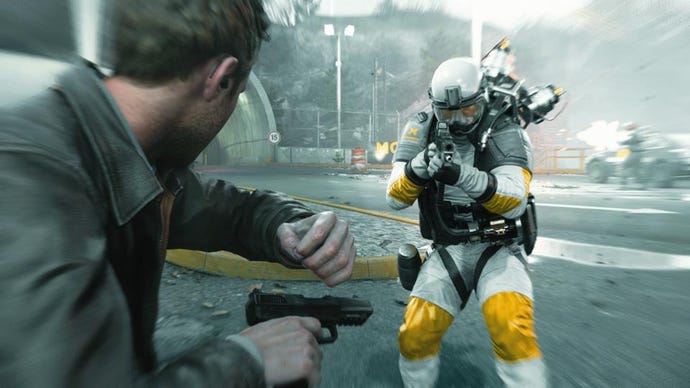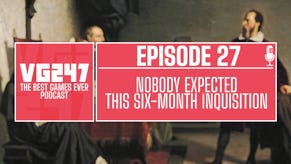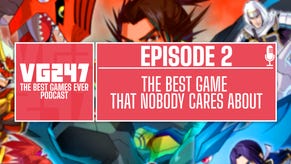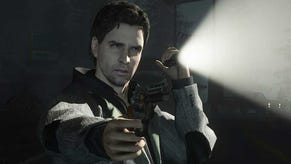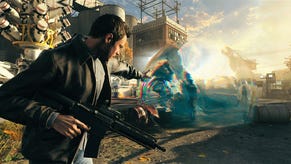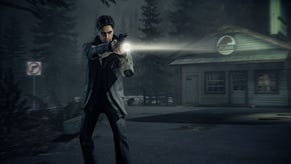Quantum Break review: a game trapped in time
Remedy wants its Xbox One debut to feel like the future of gaming. Instead, it feels rooted firmly in the past.
"It never rises above being a moderately interesting action game that occasionally forces you to stop playing and watch 22 minutes of mundane television."
A lot has changed between the 2013 announcement and the 2016 release of Quantum Break. The Xbox One’s pledge to provide interactive and exclusive television content has been largely abandoned, with Xbox Entertainment Studios closing in 2014. Whereas once we had Steven Spielberg promising that the Xbox brand would blend gaming and film in ways we’ve never seen before, all we ended up with was a documentary about the videogame crash of 1982 and the relatively interesting Halo: Nightfall, which was included in The Master Chief Collection.
Initial trailers for Quantum Break promised that it was entering ‘uncharted territory’, and would offer a combined gaming/television experience in which each choice you made in the game would affect how the show panned out, and vice versa. We were told that this was a brand new way of telling stories, and that the way we played was about to change.
The game makes an honest shot at living up to some of these promises, but never rises above being a moderately interesting action game that occasionally forces you to stop playing and watch 22 minutes of mundane television. There are four episodes of the show, which is about how many episodes it would have taken for ratings to plummet if it screened on a major network. Some remnants of the team’s initial ambition remain, but Quantum Break is likely to be remembered more for its interesting action mechanics than for its storytelling, which ultimately breaks very little new ground.
The plot in Quantum Break is a bit all over the place, only really crystallising in the second half – and even then, only if you’ve spent a lot of time reading over every e-mail and note that you encounter. The broad strokes: time gets broken after a time-travel experiment goes wrong, and protagonist Jack Joyce (played by Shawn Ashmore in both the game and the TV series) needs to fix it. Following the trail left by the research of his scientist brother William (Dominic Monaghan), Jack goes after Paul Serene (Aidan Gillen), who caused the original incident with that initial travel through time. Jack and Paul are both imbued with time manipulation powers from the experiment, and both have different ideas of how to handle the impending ‘end of time’ that Paul has witnessed. There are numerous revelations, double-crosses, and about 88 minutes of television content that focus largely on the goings-on of Serene’s company, Monarch Solutions, which is right at the centre of everything.
There are pieces of terminology and ideas borrowed from Kurt Vonnegut’s Slaughterhouse-Five and Chris Marker’s La Jetée (the short film that inspired 12 Monkeys), but Quantum Break doesn’t pack nearly as much emotional punch as either of them. It eventually builds up its narrative threads to a point where its characters start to express actual ideas and emotions rather than exposition, but it took me until the second half of the game to form any sort of emotional investment in the story.
My increased engagement was at least partly related to how enjoyable the game’s combat becomes once you’ve unlocked and started upgrading all of Jack’s ‘time’ powers. You can get through quite a few situations early on in Quantum Break by playing the game like a standard cover shooter, but before too long you’re forced to really start playing around with all the different abilities Jack gained in the opening incident.
Jack’s earliest ability lets him temporarily freeze a single enemy, letting you fire bullets into the time bubble right in front of them so that when time resumes all the bullets hit them at once. Things ramp up from there, and although the link between some of your powers and the whole ‘time’ theme are a bit nebulous (the ‘time shield’ feels pretty forced), Jack eventually turns into a real force to be reckoned with. Once you unlock the ability to freeze time and run around at super-speed, taking down enemies with melee attacks or seeking shelter from gunfire, your strategic options increase considerably. The difficulty of the combat encounters ramp up alongside your abilities: a few acts in you’re facing off against foes with their own time-manipulation powers, who are able to dodge several of your moves. When powerful enemies surround you, and you need to think strategically and use your full arsenal of attacks, Quantum Break realises a great deal of its conceptual potential.
But despite being quite enjoyable and introducing some cool ideas, for a lot of its run time Quantum Break feels like a mid-cycle Xbox 360 game. It’s like one of those action games that were a dime a dozen on Microsoft’s old device, with a few neat gimmicks and an undercooked, short campaign. The sort of game that a handful of people played, enjoyed, and promptly forgot about six years ago. It’s a little too enamoured with letting you wander through mundane spaces, as though simply controlling an avatar in a 3D space is inherently interesting. Playing Quantum Break made me realise that games have moved forward in ways I hadn’t necessarily thought about. Developers and writers have found new ways to tell stories with environments, shooter mechanics have grown more defined, and we are seeing fewer games that seem unsure of themselves or what they are. Quantum Break feels aged in ways the developers surely didn’t intend.
Because of Quantum Break’s transmedia gimmick, at four points you need to sit through an episode of the television show. Each episode is preceded by a ‘junction’ moment, in which you take control of Paul Serene and make a choice that will affect the plot going forward. Remedy made a big deal about how your choices will change how things play out, but in truth these four choices are the only major factors that determine plot elements – you can also discover hidden collectables that will introduce minor changes, but these are more like deleted scenes being restored than major upheavals.
"Despite being quite enjoyable and introducing some cool ideas, for a lot of its run time Quantum Break feels like a mid-cycle Xbox 360 game."
As a show, it stinks. There’s little in the way of directorial flourish, early episodes introduce characters with almost no context, and performances generally range from hammy (from the actors who seem aware of how above the whole thing they are) to amateurish. The one exception is Aidan Gillen, whose heavy presence throughout both the game and the show allows him to imbue Paul Serene with a depth and tragedy that the other characters aren’t afforded. There are a few decent action scenes, and it’s kind of cool exploring settings in-game after seeing them in the show, but I remain unsold on the gimmick Remedy are selling here. There’s little incentive to replay and see how different choices pan out.
For all their talk of revolutionising storytelling, Quantum Break relies very heavily on your commitment to walking up to every computer, whiteboard, note and tablet scattered throughout the game, then scrolling through reams of small text on the screen while whichever character Jack is with at the time begs him to hurry up. While a few of these texts make for nice Easter eggs (there’s a hilarious on-going email thread featuring a deluded nerd’s screenplay about a time-travelling knife), some of them are genuinely important plot points that you’re going to miss entirely if you don’t laboriously read through every collectable bit of info.
All of this leads to a game that, while enjoyable, feels unfinished. You can see ambitions being reined in, systems and plot elements being hurriedly implemented or abandoned. There’s a general sense that Remedy had to make some sacrifices to hit their release date: this is often the case with games, but it’s a shame when it’s so transparent. Combat encounters get dialled right back towards the end, and there are enough plot elements left dangling to ensure that the team are planning either a sequel or DLC. The core framework of Quantum Break has enough going for it to offer some moments of excitement, and playing the game is never a slog, exactly. Yet Quantum Break doesn’t feel like it’s the game the team wanted to make, and it’s certainly not the future of gaming or television.
Quantum Break is due for release on Xbox One today. Catch up on the rest of the internet's reviews in our comprehensive round-up.
